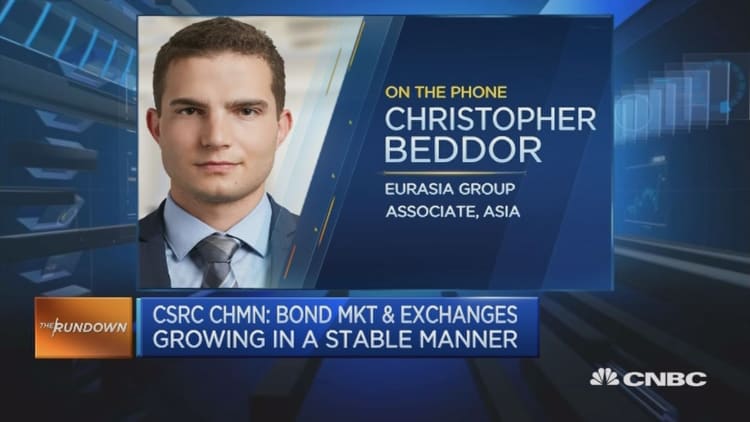
China's pledge to focus on the stable development of its capital markets will slow the pace of financial reforms as the world's second largest economy works to balance domestic needs against financial liberalization, an analyst said Monday.
Ahead of the National People's Congress starting on this coming Sunday, China Securities Regulatory Commission (CSRC) chairman Liu Shiyu told a news conference in Beijing at the weekend that the country will focus on stable development of its capital markets this year, although it will continue to further open its markets to foreign companies.
Liu's comment also follow his warning earlier this month that the CSRC would take down law-breaking financial tycoons he called "giant crocodiles", saying they will not be allowed to profiteer from retail investors.
"What Liu is promising is stable market conditions, which is more or less what he is delivering on, but he is also proposing reforms that are essentially non-reform e.g. lifting restrictions on stock market that were in place after the crash or some other small thing," said Christopher Beddor, associate at Eurasia Group.
What the market has been hoping for, he said, would be the likes of the "crown jewel" of financial reforms involving initial public offerings that will allow Chinese companies to raise money through equity capital rather than debt, taking some pressure off China's banking system. Regulators have postponed the new IPO mechanism that will give market forces a bigger role in valuations after a stock market rout in June 2015.
"The core issue that they are dealing with is the debt issue in China, which is obviously growing at an extremely rapid pace; it is growing at an unsustainable pace over the long term," Beddor told CNBC's "The Rundown".
The Chinese government, said Eurasia's Beddor, may have "bigger fires to fight" right now, but getting distracted by the crisis of the day will not help the economy in the long run. The issue at the heart of China's debt problem is one of capital allocation, which is needed to sustain long-term growth and handle the high leverage levels, he added.
Currently, China is trying to curb capital outflows to support the weakening yuan as regulators keep their eyes on policy changes in the U.S.
At the same time, China has said before its inclusion into the International Monetary Fund Special Drawing Rights valuation basket that it wants to gradually liberalize its capital markets, highlighting monetary policy tension, Beddor said.
"They try to do this this awkward thing where state admin of foreign exchange says we're not imposing capital barriers, what we're doing is tightening enforcement of it. To some extent, that is true. But at the end of the day, is it becoming harder to get your capital out of China?
"There's absolutely no question about that. It just shows that they may say something about reforms but when the economic reality bites, they will defend their interests very rapidly," he added.

